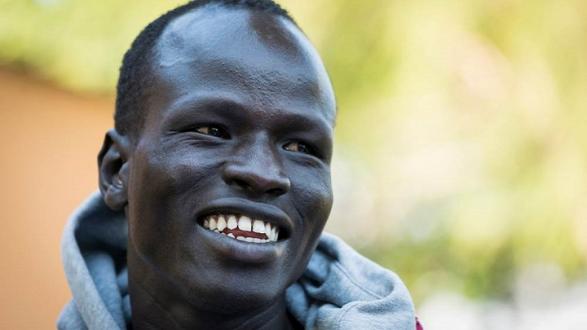In:
Global Beat is your weekly stop for news from around the world. Join us every Friday morning for important stories you should know about.
This week, an Olympic team of refugees makes history in Rio; researchers in Cuba develop a vaccine for lung cancer; women in Nepal organize to gain independence from a patriarchal caste system; and more.
____________________
Americas
Researchers from Cuba’s Centro de Immunologia Molecular (or the Center for Molecular Immunology) have developed a vaccine that has caught the attention of several countries around the world, including the United States and Japan. CIMAvax, a therapeutic vaccine for lung cancer, has shown promising signs of effectiveness. Even more remarkable is that the researchers discovered the vaccine despite the lack of medical and pharmaceutical technology available because of a decades-long U.S. embargo. Cuba spends less than five times the amount per person on healthcare as the United States, and its people enjoy a slightly longer lifespan.
Also check out:
- Zika in the United States, explained in 9 maps – Brian Resnick, Vox
Central & South Asia
Women in the historical region of Maithila in southeastern Napal, living under deeply patriarchal caste traditions, have been organizing to gain independence from the harsh gender barriers. They have recently become more economically independent through organizations such as the Janakpur Women’s Development Center, which helps them sell goods to cities in Nepal and abroad. Women’s rights in Nepal more broadly are very limited; girls are often confined to domestic duties and denied access to education.
Also check out:
- Barricades, clashes and a white dog: two weeks of protest in Armenia’s capital – 4Plus, The Guardian
China & East Asia
On Monday Uber China sold itself to China’s largest car-sharing company, Didi Chuxing, in another example of foreign companies losing ground in China’s competitive market. According to the New York Times, the merger "would create a new company worth about $35 billion… [and] end the great ride-hailing battle of China." Uber joins the ranks of Google, Amazon, and other U.S. corporate giants that have had to wave the white flag in China.
Also check out:
- China praises Afghanistan for fight against Chinese separatist group – Michael Martina, Reuters
Europe & Russia
Recent terror attacks have sparked renewed debate on the financing of mosques in France. Earlier this week French Prime Minister Manuel Valls declared that the country's 2,500 mosques must not receive funding from foreign sources. France’s policy of laïcité, or secularism, prevents the government from providing any support of or funding for religious entities. Since December 2015, 20 French mosques have been closed on suspicion of promoting radicalism. The French Council of the Muslim Faith announced that a foundation will be created as a source of domestic funding for mosque construction and operation.
Also check out:
- Ukraine’s leaders think their country is too important to fail. They're wrong – Askold Krushelnycky, Foreign Policy
Middle East & North Africa
The United States launched major airstrikes in Libya this week in an effort to destroy ISIL in the city of Surt, which hosts fewer than 1,000 fighters. The Libyan government has asked for assistance to degrade the group’s presence in the region. Libya offers a powerful strategic base for ISIL due to its proximity to Europe and the Middle East. Airstrikes are set to continue over the next few weeks.
Also check out:
- German prototype Moon rover tested in Qatari desert – Kate Arkless Gray, Al Jazeera
Southeast Asia & Oceania
On Tuesday President Obama welcomed Singapore Prime Minister Lee Hsien Loong to the White House where both leaders offered support for the Trans-Pacific Partnership (TPP). The TPP is a trade agreement between 12 countries that seeks to liberalize 40 percent of the world’s economy by cutting tariffs and strengthening economic ties. The deal has received significant opposition from many in the United States, including both 2016 presidential candidates, who argue that it will negatively impact the U.S. manufacturing industry. Singapore sees the TPP as a boon for the country’s economy, and Loong emphasized that ties between Washington and Asia would be strengthened as a result of its implementation.
Also check out:
- Australia shows why raising the minimum wage doesn’t always fix poverty – Luke Ryan, Quartz
Sub-Saharan Africa
For the first time in history a team comprised entirely of refugees will be competing at the Olympic Games in Rio. The Olympic Refugee Team consists of 10 members, selected from 43 nominees, who have been displaced by conflict and strife from around the world. The team includes five middle-distance runners from the Kakuma refugee camp in Kenya, who escaped war in South Sudan; a marathon runner who fled Ethiopia; two judokas from the Congo; and two swimmers from Syria. They will bear the Olympic flag during tonight’s opening ceremony.
Also check out:
- South Africa: Losing faith in the ANC – David Pilling, Financial Times




